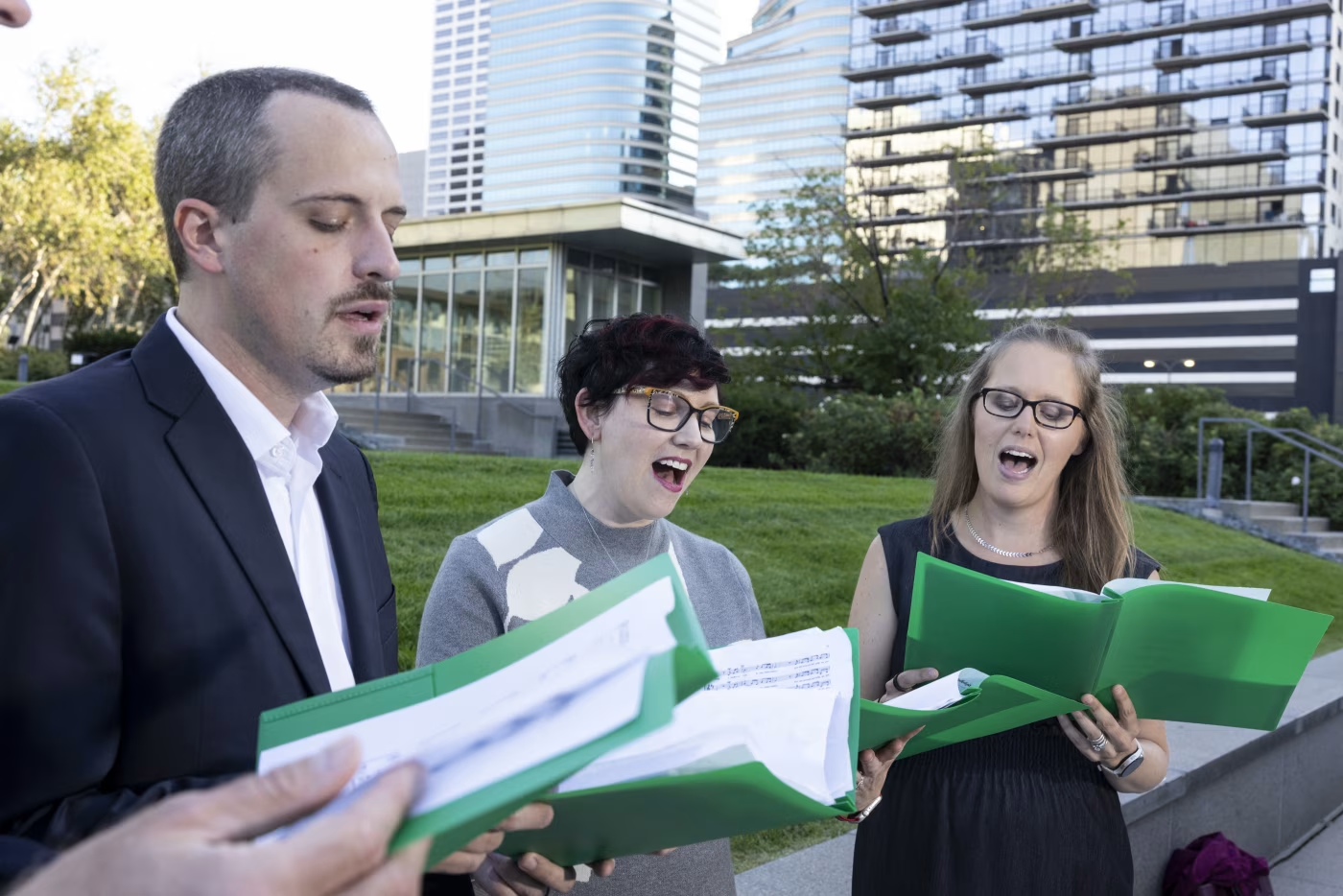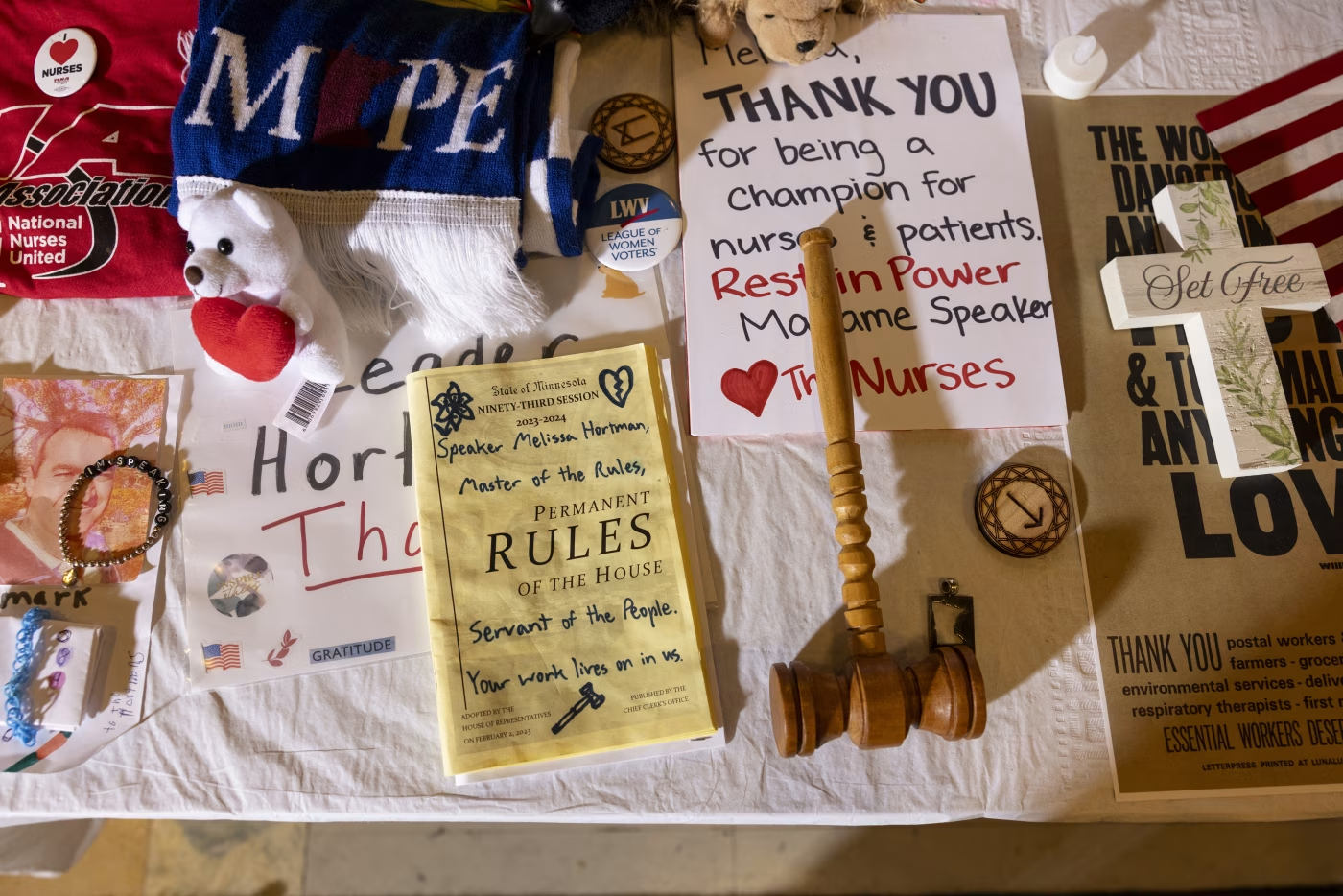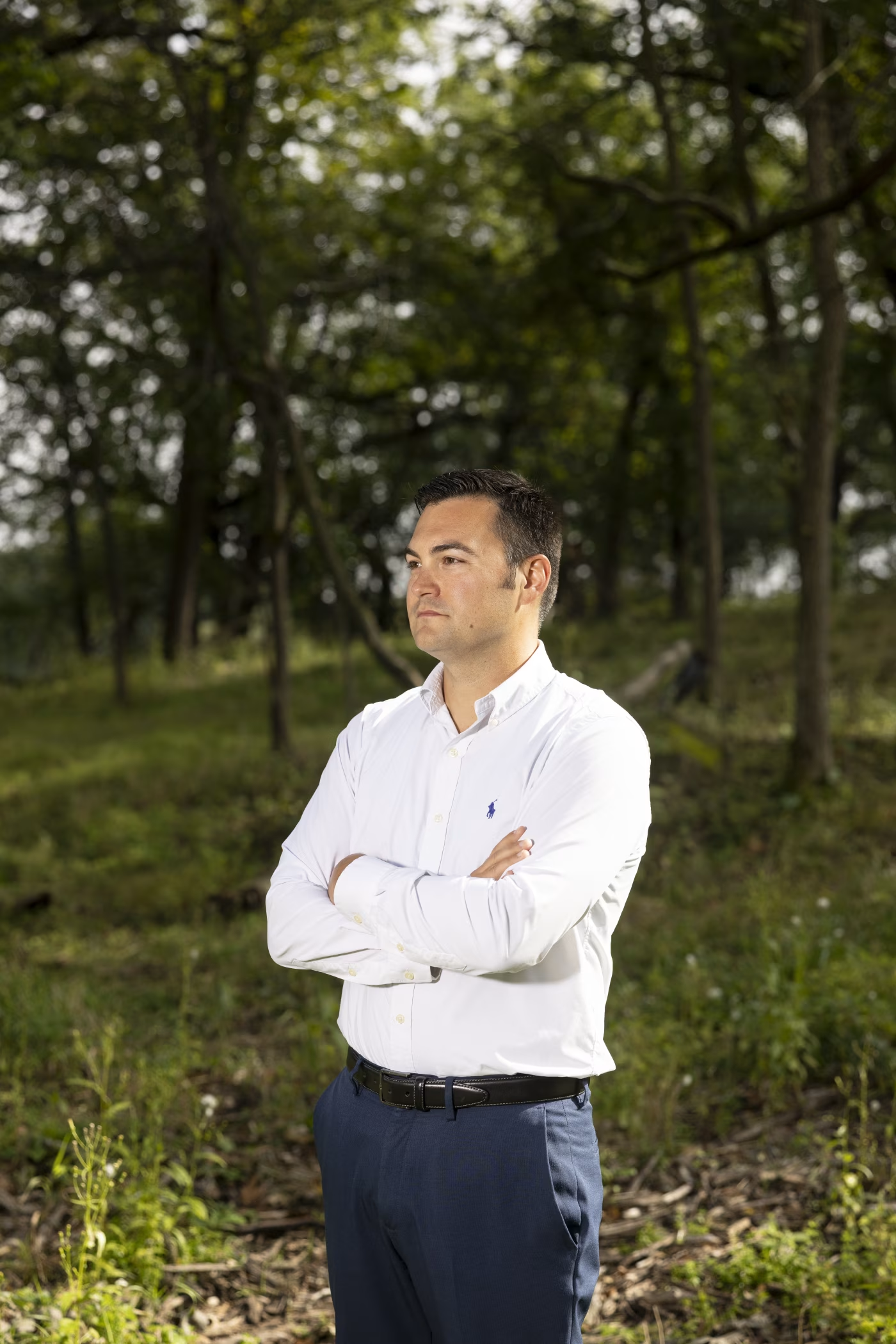Meet the Lawmakers Trying to Bring Civility Back to Politics
October 4, 2025
State legislators in Minnesota, Arkansas, Kansas and beyond are taking on America’s political rage. Opponents are ‘not the devil.’

By Scott Calvert | The Wall Street Journal
MINNEAPOLIS—On the terrace of an upscale hotel one recent evening, the entertainment—a singing quartet—featured a baritone, tenor, alto and soprano. Equally notable was their political range, from conservative Republican to liberal Democrat, and the fact that all four serve in Minnesota’s House of Representatives.
In today’s toxic climate, Minnesota lawmakers from both parties are attempting something different—bipartisan harmony.
The Minnesota Legislature has a “Civility Caucus” of Republican and Democratic legislators on an improbable mission: getting opposing lawmakers talking, solving problems—and proving to the public they can.
The caucus organizes happy hours, karaoke, volunteering and—this being Minnesota—potlucks heavy on “hotdish.”
For alto Sandra Feist, a Democratic state representative and caucus co-chairwoman, last month’s singing gig was an extension of her work fostering cross-party interactions that were once more common. “We don’t demonize one another when we’ve shared a meal,” she said. “Hopefully that is something that the public sees and can emulate.”
Cultivating ‘a movement’
A growing urgency is propelling similar efforts nationwide. Rancor has deepened, from partisan blame-trading to political violence, including the June attack that killedMinnesota state Rep. Melissa Hortman and her husband, Mark Hortman, and wounded state Sen. John Hoffman and his wife, Yvette Hoffman.

In August, attendees at the National Conference of State Legislatures conference in Boston thronged sessions such as “Getting From Division to Dialogue in State Capitals” and “How to Have Hard Conversations in a World of Polarization and Profound Disagreement.”
The National Institute for Civil Discourse is seeing heightened demand for its sessions that help lawmakers get along, said Keith Allred, executive director of the University of Arizona-based center. “The surge in polarization over the last 30 or 40 years in this country was led by elected officials,” he added. “And they turn out to be key to bringing the temperature down.”
More state lawmakers are joining initiatives such as Future Caucus, which targets Gen Z and millennial legislators to “bridge the partisan divide.” Lawmaker membership has more than doubled since 2022, from 213 to 471.
In Kansas, Democratic state Rep. Brandon Woodard and GOP state Sen. Tory Marie Blew co-chair the Future Caucus chapter there. They are so close that they share their phones’ locations with each other. Though politically “polar opposite,” Blew said, they bond over dinners and ax-throwing, and find some common ground.
“We’re starting a movement that you can interact with the people across the aisle—they’re not the devil,” said Blew, 32, a conservative from a rural district. “I’m definitely not compromising. I’m learning about where they’re coming from.”
To Woodard, 35, who leads the Democrats’ House minority, working with the GOP supermajority is crucial. Some progressives sniped about the cooperation, he said, only to “realize this is the only way to get anything done.”

Political dividends
While some officeholders worry bipartisan cooperation will anger base voters, evidence actually suggests political upsides, said Stanford University professor Robb Willer, who runs the university’s Politics and Social Change Lab. A study he co-led tested responses to ads featuring governors from both parties touting cordial disagreement. The research, not yet published, found even partisan voters responded favorably.
“When people see it, they see it as the leadership that it reflects, and it reflects a moral clarity that’s sort of hard to deny,” Willer said.
The study examined the Disagree Better campaign, launched in 2023 by the National Governors Association, then co-chaired by GOP Utah Gov. Spencer Cox. The project arose from Cox’s viral 2020 ad with his Democratic opponent, calling for constructive dialogue.
Last month, Cox again called for toned-down rhetoric after the assassination of Charlie Kirk in Utah.
Conservative commentator Steve Bannon dubbed Cox a “gutless Republican.” President Trump rails against “radical left lunatics.” Some on the left label Trump fascist and authoritarian.
Nearly 60% of voters don’t think it will be possible to lower the temperature on America’s political discourse, according to a September Quinnipiac University poll.
Workout partners
In Arkansas, state Sen. Jamie Scott, a Democrat, said the political climate is so stressful that she saw a therapist recently. As much as she dislikes some GOP policies, she values her ties with Republicans, including fellow Arkansas state Sen. Breanne Davis.
She and Davis, co-chairwomen of the Future Caucus chapter there, exercise together at 5 a.m. during the legislative session. “It’s just me and her grinding, trying to push and encourage each other. ‘Finish your reps!’” Scott said.
Their collaboration included a bill banning discrimination based on hairstyle. Davis, 42, worked across the aisle to secure 12 weeks paid maternity leave for teachers, while Scott, 43, did so on a bill granting state employees five paid bereavement days.
Scott wants the public to notice them working together. “This environment is crazy,” she said, “and I don’t want Arkansas to be the next Minnesota.”
Inside Minnesota’s ornate capitol, a makeshift memorial honors the Hortmans, with flowers, photos and notes from as far away as Australia. GOP state Rep. Kristin Robbins, who co-chairs the Civility Caucus, paused there recently. “There’s always a light shining in the darkness, and we’re part of that,” she said.

Civility Caucus events typically occur during the hectic annual legislative session. “My biggest thing is always to be great examples for our kids,” said Minnesota Republican state Sen. Zach Duckworth, 38, a caucus co-chairman.
Another benefit is trust, said Robbins, 57. When she wanted to require school districts to adopt cellphone policies, she let Feist lead, given that Democrats then controlled the House. (It is now evenly split.)
The two lawmakers still square off on key issues: Robbins, for example, spoke out against Feist’s (unsuccessful) bid to make Minnesota a sanctuary state.
Feist spent an afternoon scooping chickpeas at a food bank with GOP Rep. Walter Hudson. He later publicly backed her bill to improve the restorative-justice process for sexual-assault survivors, cooperation both attribute partly to their shared volunteer work.
Hudson, 46, doubts the caucus can fix broader political problems. “On the other hand,” he said, “if we get to the point where nobody’s even trying, then we’re really in a dangerous spot.”
Finding harmony
Minneapolis lawyer Joe Greenthought up the quartet performance. A board member of the Minnesota Orchestra, he offered an intriguing item for the organization’s silent-auction fundraiser. The winning bidder would get a sauna outing with friends at an upscale hotel, and be serenaded by musicians. Green wound up being the top bidder.
Green knew Democratic Rep. Jamie Long sang. They both knew Feist sang, too. Feist in turn recruited two Republican crooners, including Rep. Max Rymer, 34, whom she had heard at Civility Caucus karaoke.
Rymer said he enjoys singing with colleagues but isn’t sold on a big “kumbaya moment.” “We just have to get back to this place where you are attacking each other’s ideas, you are debating ideas,” he explained. “Will there be hostility and hurt feelings around that? Absolutely.”
The quartet chose Billy Joel’s “And So It Goes” and Leonard Cohen’s “Hallelujah,” rehearsing twice at Feist’s home. On the hotel terrace, they sang for several guests who wore white robes.

Afterward, the four singers strolled through the balmy evening to a Mexican restaurant. Over dinner, they wove personal stories with legislative shoptalk. It was, Feist said later, “a real bonding experience.”






Join 1,900+ BIPARTISAN LEADERS NATIONWIDE
Be a part of a network of lawmakers committed to governing effectively, passing more representative public policy, and increasing public trust in democracy.